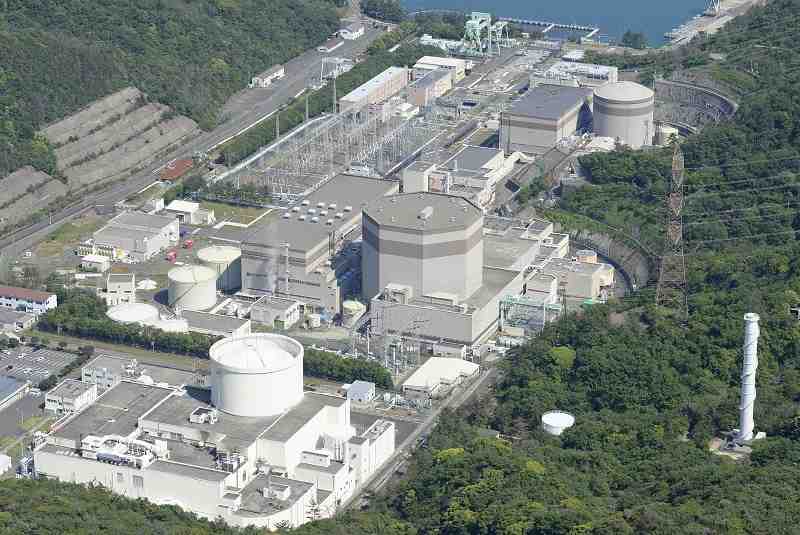
The No. 2 reactor at Japan Atomic Power Co.’s Tsuruga power plant in Tsuruga, Fukui Prefecture is seen in May, 2021.
17:50 JST, November 16, 2022
The Nuclear Regulation Authority on Wednesday approved in principle a plan that would allow the economy ministry to extend the operational life of nuclear power plants at intervals of within 10 years, beginning 30 years after the start of their use.
If this system is introduced, the current rules for nuclear power plants — adopted in the wake of the 2011 accident at the Fukushima No. 1 nuclear power plant — which set the operating period at “40 years in principle, extendable to a maximum of 60 years” will be changed, allowing plants to operate for “over 60 years.”
The NRA will compile a draft to amend the Law on the Regulation of Nuclear Source Material, Nuclear Fuel Material and Reactors, which sets the current rules, aiming to have it submitted at an ordinary Diet session next year. At its regular meeting Wednesday, the agency decided that it would discuss whether to formally accept the plan once the Economy, Trade and Industry Ministry has decided on its policy.
Under the current rules, when a nuclear plant reaches 40 years after the start of its operation, the NRA checks the “hard” aspects of the plant, meaning the safety of key physical facilities such as reactor buildings, and then grants a one-time extension of up to 20 years.
In addition, the watchdog has been taking measures to combat aging every 10 years for nuclear power plants that have been in operation for more than 30 years, by evaluating mainly the “soft” side, such as deterioration of parts, frequency of their replacement and adequacy of maintenance plans.
The NRA’s proposal seeks to unify the screening of the hard and soft sides. After 30 years of operation, nuclear plants will undergo safety inspections in terms of both sides before getting the green light for extended operation. After that, the NRA will check the status of deterioration for each plant, and give approval at intervals of within 10 years. The timing to first get approval for an extension thereby moves forward by 10 years from the current 40 years, and utilities would become able to operate nuclear power plants as long as they receive approval.
In regard to total operational life, the economy ministry is in discussions to decide to either eliminate upper limit, or to set a certain cap but not include periods when a plant is shut down. It will decide on a policy by the end of the year.
Top Articles in Business
-

Prudential Life Insurance Plans to Fully Compensate for Damages Caused by Fraudulent Actions Without Waiting for Third-Party Committee Review
-

Narita Airport, Startup in Japan Demonstrate Machine to Compress Clothes for Tourists to Prevent People from Abandoning Suitcases
-

Japan, U.S. Name 3 Inaugural Investment Projects; Reached Agreement After Considerable Difficulty
-

Toyota Motor Group Firm to Sell Clean Energy Greenhouses for Strawberries
-

SoftBank Launches AI Service for Call Centers That Converts Harsh Customer Voices into Softer Voices
JN ACCESS RANKING
-

Japan PM Takaichi’s Cabinet Resigns en Masse
-

Japan Institute to Use Domestic Commercial Optical Lattice Clock to Set Japan Standard Time
-

Israeli Ambassador to Japan Speaks about Japan’s Role in the Reconstruction of Gaza
-

Man Infected with Measles Reportedly Dined at Restaurant in Tokyo Station
-

Videos Plagiarized, Reposted with False Subtitles Claiming ‘Ryukyu Belongs to China’; Anti-China False Information Also Posted in Japan




















